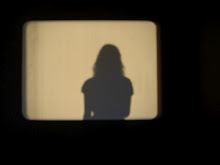
I emerged from the darkness. It stood before me, a tower of stone and concrete, a most elegant example of mankind’s eternal attempt to capture the intangible.
And all I could think was, “This is Big Ben?”
That Clock of all clocks, one of the most recognizable European monuments for any American, became for me a symbol of disenchantment. As I stood there on my first trip to England, the murky sky set the backdrop for a lesson that would only be repeated as my travels continued. The London Bridge (I recommend visiting Tower Bridge instead, a sort of willful self-deceit), the Eiffel Tower, the Arc d’Triomphe, the Parthenon…as the list grew, so did my feeling of betrayal. Every one of these monuments was not only smaller than I’d thought-each was surrounded by a thicket of tourists milling in a linguistic cesspool. Enjoyment was near impossible.
It wasn’t until I extracted myself from my prejudices (and the sweaty crowd of photographing oglers) that I was able to make some sense of the situation.
In his book, England, England, Julian Barnes creates an island off the coast of England that is filled by an entrepreneur (picture an adventurous Six Flags CEO meets Bill Clinton ) with miniature replicas of England’s most popular sights. This ridiculous miniature Disney island ends up a complete success, answering a need never before served by majestic monuments: the experience of convenience.
When you think about it, tourism isn’t as much about seeing these ancient wonders. How different is your life after a glimpse of an old clock, or a moldy church? For most, the answer is not very. No, like so much else these days, tourism is about ourselves. How seeing Monument X will make us feel smart, cultured, or exotic (take your pick). This is what is capitalized on in the satire of Barnes’ novel.
These “attractions” are the realest manifestations humans have of years gone by. We are literally taking our history and turning it into a spectacle. By turning it into a money-making endeavor, humans cheapen their own roots.
It was then I realized that perhaps the problem was mine. These temples, clocks, and bridges never proclaimed themselves to be anything more than what they are…ancient constructions of humans that, at one time, served a real purpose. They did not ask to be photographed. They did not ask to be printed on woven cotton and worn over potbellies with Bermuda shorts. No, they merely exist. It is we who impose upon them this extra responsibility. Imagine a world in which it wouldn’t be so. It’s hard, and it will probably never be. But, oh, if only…
Sunday, March 26, 2006
England, England Syndrome
or The Future of History
Subscribe to:
Post Comments (Atom)

No comments:
Post a Comment